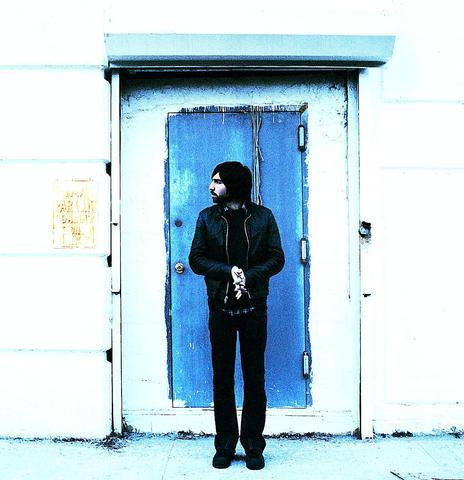The traditionally rock-centric Formoz Festival is for the first time staging "electronica," an umbrella term for musicians who don't play in the now-traditional drum and guitar format -- and DJs.
The label electronica is often used when government officials or promoters want to put on DJs at an event they are sponsoring, but do not want to be associated with the stigma they created: equating dance music with drug use.
The other use of "electronica" is by the musicians and DJs themselves ("artists"), who use the label to distinguish themselves from their more commercial (better paid) club cousins.

PHOTO COURTESY OF SILENT AGREEMENT
Hence, in regard the "Electronic Stage" at this year's festival, organizers are keen to explain that though many of the names that will be appearing are club or rave DJs, they will not be when they play at Formoz Festival. This may sound contradictory.
"It's not really a dance stage, it's indie electronica. In Taiwan there are several kinds of electronica. You've got your dance or techno music and your drugs -- and you've got your independent scene. This stage focuses on the music rather than drugs. It's not a club, it's different from a club," says Formoz Festival founder and Cthonic lead singer Freddy Lin (林旭佐), head of Taiwan Rock Alliance.
It's as if rock musicians, fans and those on the indie scene never took drugs.
So, while Formoz Festival is to be congratulated on the fact that it is putting on dance, ambient, experimental, drum `n' bass and other forms of electronic music -- some of it less commercial than played in most clubs -- it will actually sound and look a lot like a dance party.
Dance music label Silent Agreement is organizing the Electronic Stage and said tonight's show will go on until the early hours. Tomorrow and Sunday will go on late, too. This, translated, means a dance party will take place after the rock bands have finished on the other four stages.
Acts to look forward to tonight include The Album Leaf, Californian Jimmy LaValle's electronic-mood music inspired by Brian Eno and (for his latest album) Iceland. The show is likely to include projection art and live strings. Local heroes Monbaza, 78bpm and popstar-turned-artist DJ Lim Qiong
(

On April 26, The Lancet published a letter from two doctors at Taichung-based China Medical University Hospital (CMUH) warning that “Taiwan’s Health Care System is on the Brink of Collapse.” The authors said that “Years of policy inaction and mismanagement of resources have led to the National Health Insurance system operating under unsustainable conditions.” The pushback was immediate. Errors in the paper were quickly identified and publicized, to discredit the authors (the hospital apologized). CNA reported that CMUH said the letter described Taiwan in 2021 as having 62 nurses per 10,000 people, when the correct number was 78 nurses per 10,000

As we live longer, our risk of cognitive impairment is increasing. How can we delay the onset of symptoms? Do we have to give up every indulgence or can small changes make a difference? We asked neurologists for tips on how to keep our brains healthy for life. TAKE CARE OF YOUR HEALTH “All of the sensible things that apply to bodily health apply to brain health,” says Suzanne O’Sullivan, a consultant in neurology at the National Hospital for Neurology and Neurosurgery in London, and the author of The Age of Diagnosis. “When you’re 20, you can get away with absolute

May 5 to May 11 What started out as friction between Taiwanese students at Taichung First High School and a Japanese head cook escalated dramatically over the first two weeks of May 1927. It began on April 30 when the cook’s wife knew that lotus starch used in that night’s dinner had rat feces in it, but failed to inform staff until the meal was already prepared. The students believed that her silence was intentional, and filed a complaint. The school’s Japanese administrators sided with the cook’s family, dismissing the students as troublemakers and clamping down on their freedoms — with

As Donald Trump’s executive order in March led to the shuttering of Voice of America (VOA) — the global broadcaster whose roots date back to the fight against Nazi propaganda — he quickly attracted support from figures not used to aligning themselves with any US administration. Trump had ordered the US Agency for Global Media, the federal agency that funds VOA and other groups promoting independent journalism overseas, to be “eliminated to the maximum extent consistent with applicable law.” The decision suddenly halted programming in 49 languages to more than 425 million people. In Moscow, Margarita Simonyan, the hardline editor-in-chief of the